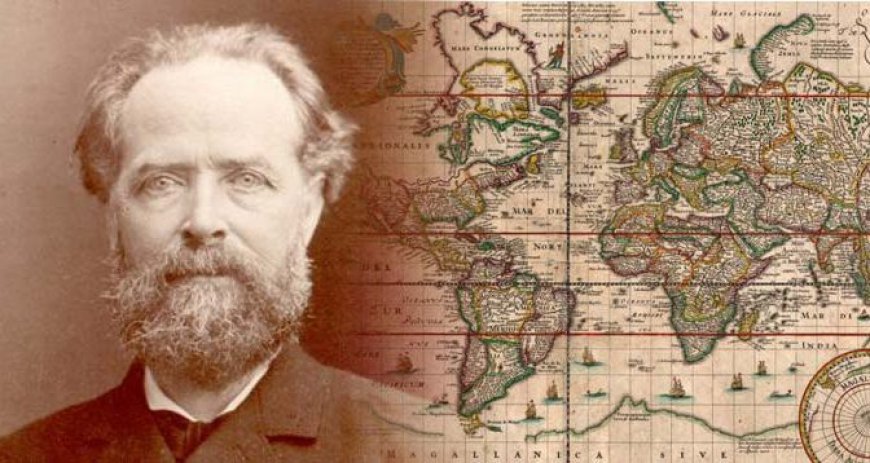Élisée Reclus on anarchy and nature
For the great anarchist geographer, anarchy was at play in every natural relationship grounded in solidarity ~ Fabio Carnevali ~ Reclus was the anarchist who “never commanded anyone, and never will”, as his younger friend Kropotkin said of him, as well as the geographer for whom many important scientists—including Charles Darwin—mobilised when he risked being The post Élisée Reclus on anarchy and nature appeared first on Freedom News.


For the great anarchist geographer, anarchy was at play in every natural relationship grounded in solidarity
~ Fabio Carnevali ~
Reclus was the anarchist who “never commanded anyone, and never will”, as his younger friend Kropotkin said of him, as well as the geographer for whom many important scientists—including Charles Darwin—mobilised when he risked being deported to New Caledonia after the Paris Commune.
In Reclus’ works, anarchy and the study of nature were tied together in a strict bond. Both his political and geographical studies date back to his youth, and he soon came to connect the two. After Louis Buonaparte’s coup d’état in 1851, Élisée and his brother Élie both went into exile. In these years Élisée lived in Ireland at first, then in Louisiana, and lastly in Colombia. This allowed him to gather material for his first geographical works while developing his critique of slavery in the United States.
Reclus did not think of anarchy as a utopia for the future; instead, it is the form of all those relationships that put into practice mutual aid, the “illuminated factor of evolution”, showing his affinity with Peter Kropotkin. For both, an adequate understanding of nature and the relationship between human and nonhuman would foster solidarity and help demystify the ideologies that conceal the truth of humanity’s role in nature.
In a speech given to a masonic lodge in Brussels in 1894, Reclus defined the anarchist idea of freedom as a peaceful coexistence that does not stem from obedience to law and/or fear of punishments, but rather “from mutual respect for the interest of all, and from the scientific study of natural laws”. For him, anarchy was at play in every natural relationship grounded in solidarity. Promoting social change meant creating groups of people that practice solidarity and choose to live according to this principle. In this sense, ‘education’ means forming people and communities that are free and willing to fight for their freedom.
“Nature becoming self-conscious”
Reclus thought of anarchy as the most natural form of relationship, and certainly the only one that allows for real freedom. When back to France after his exile in the Americas, Reclus wrote a letter to the director of the Revue Germanique to propose a collaboration. In the letter he stated: “philosophically I attach myself to the school of Spinoza”. Indeed, this thinker’s ideas about nature, knowledge and liberation strongly echo in the background of Reclus’s thought.

One of his major writings, L’Homme et la Terre, opens with a picture of the Earth held up by human hands. Under the picture there is a sentence that reads: “Humanity is Nature becoming self-conscious”. For humanity, to understand its role in nature would imply rethinking the very basis of its ethics, taking into account the interconnectedness that binds it to the entire non-human world.
This ethical perspective led Reclus to embrace anti-speciesist positions, advocating for an ethical vegetarianism that refuses to see animals as mere food sources. He thought that humanity’s moral growth depends on the growth of the understanding of our union with the whole of life and on the strengthening of this union.
On the 120th anniversary of Élisée Reclus’s death, talking about his life and thought gives us the opportunity to think of his contribution and relevance both from a theoretical and a militant perspective. Many of his ideas are still relevant today, especially those concerning the relations between societies and nature. With regard to some ecological concepts that would later become central for other anarchists such as Murray Bookchin and John Clark, he was a pioneer and a source of inspiration for many.
The post Élisée Reclus on anarchy and nature appeared first on Freedom News.
What's Your Reaction?
























